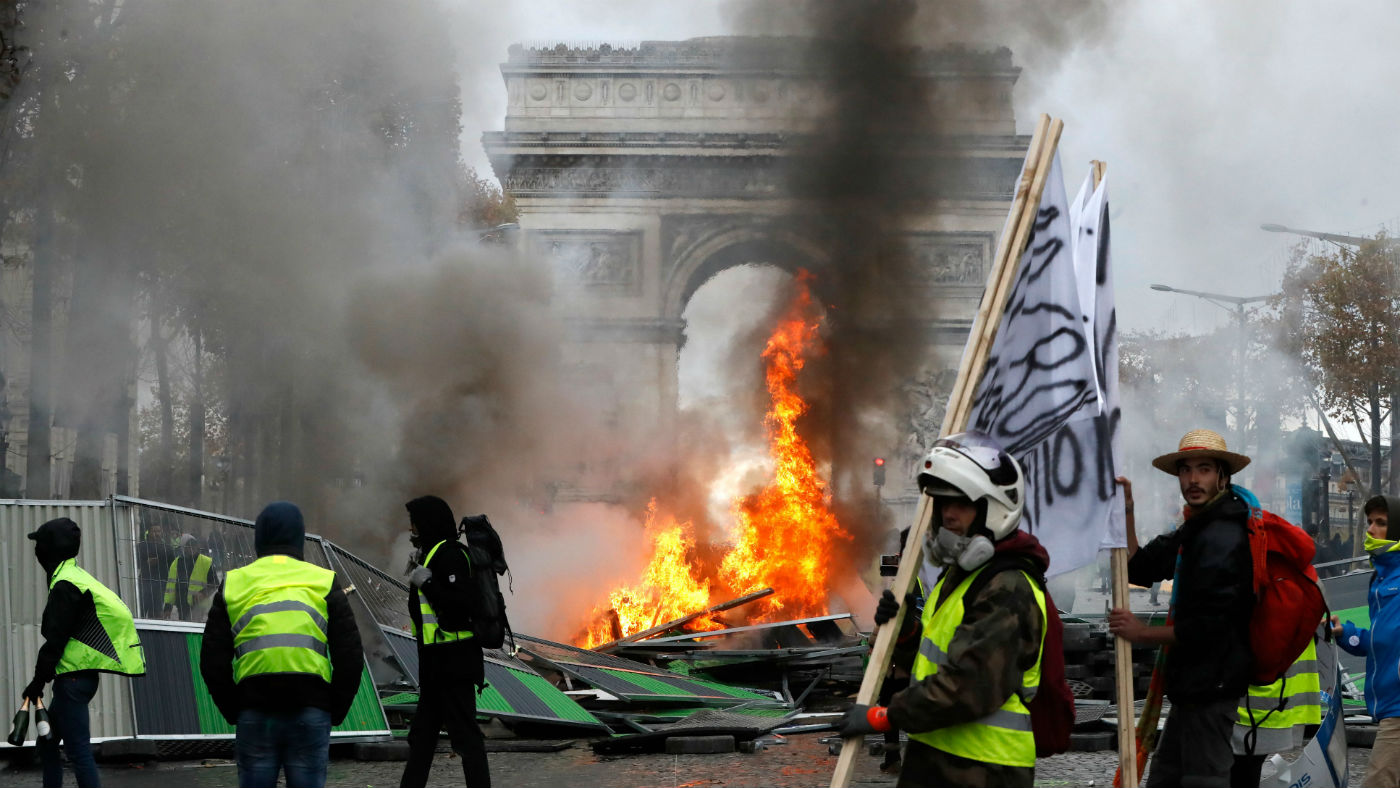Why France and Italy have fallen out
Relations between the two Western powers at lowest point since Second World War

A free daily email with the biggest news stories of the day – and the best features from TheWeek.com
You are now subscribed
Your newsletter sign-up was successful
The governments of France and Italy are trading verbal barbs and diplomatic snubs, as relations between the two nations sour following decades of cooperation.
On Thursday, France took the “extraordinary” step of recalling its Rome ambassador, marking a new low in the “worst crisis between the two neighbouring countries since the Second World War”, says The Guardian.
In a statement announcing the decision, the French Foreign Office complained of “repeated, baseless attacks and outrageous statements” from Italy’s leaders.
The Week
Escape your echo chamber. Get the facts behind the news, plus analysis from multiple perspectives.

Sign up for The Week's Free Newsletters
From our morning news briefing to a weekly Good News Newsletter, get the best of The Week delivered directly to your inbox.
From our morning news briefing to a weekly Good News Newsletter, get the best of The Week delivered directly to your inbox.
“All of these actions are creating a serious situation which is raising questions about the Italian government’s intentions towards France,” the department said.
Why are Italy and France at odds?
Tensions between France and Italy have simmered since last year’s Italian elections, which produced a coalition between two populist parties - the right-wing, anti-immigrant Lega and the broadly anti-establishment grass-roots Five Star Movement.
French President Emmanuel Macron “has likened rising nationalism to leprosy, declaring that if the populist nationalists regard him as their enemy, ‘they are right’”, says CNN.
A free daily email with the biggest news stories of the day – and the best features from TheWeek.com
Meanwhile, Italy’s co-deputy prime ministers, Luigi Di Maio and Matteo Salvini, have barracked Macron with “a series of increasingly personal slurs”, says news site France 24. The two governments have also clashed repeatedly over Europe’s response to migration.
Tensions came to a head last week, when Di Maio visited Paris to meet representatives of the so-called gilets jaunes, the protestors who have brought French cities to a standstill every weekend for almost three months.
An ideologically diverse group of disenchanted voters, many of the protesters’ core concerns - the rising cost of living, a disconnected political class, establishment bias in the media - chime with those of Italy’s populist rulers.
Di Maio uploaded a photo on social media showing him posing alongside gilets jaunes members who are standing as candidates in the European Parliament elections in May, with the caption: “The winds of changes have crossed the Alps.”
The unannounced visit was a slap in the face for Macron, whose government has taken a firm line towards the populist demonstrators, accusing them of vandalism and attacking police officers.
Hours later, the French government announced its decision to recall its ambassador to Italy.
However, the gilet jaunes row is simply a microcosm of the wider ideological gulf between Macron’s neo-liberal, pro-business Europhiles and Italy’s anti-establishment populists.
Jan Zielonka, a professor of European politics at the University of Oxford, told France 24 that for Di Maio and Salvini, Macron “represents the liberal establishment they detest so much” - while the French president has “relished the confrontation with Europe’s populists”.
What will happen next?
Former Italian PM Enrico Letta, now dean of Science Po’s Paris School of International Affairs, told CNN that the row was so politically valuable for both parties that reconciliation before the EU elections in May was unlikely.
Macron “was elected as a shield against a big populist” in the shape of far-right leader Marine Le Pen and believes that setting himself up as the bulwark of moderation “can be successful for him in Europe” too, says Letta.
Over in Italy, the French president makes a “perfect target” for the ruling coalition. As Letta points out: “Without the enemy, you can’t be successful when you are populist.”
What will happen in the long-term remains to be seen. In true populist style, Italy’s new rulers “aren’t much for conventionality and diplomatic protocol”, says The Spectator’s Daniel R. DePetris.
“While Paris sends letters of protest, Salvini tweets obnoxious comments about France being a nation of hypocrites,” DePetris writes.
Indeed, as long as this raucous duo remain in power, “it’s difficult to imagine the French-Italian brawl breaking up without someone’s nose being broken”, he concludes.